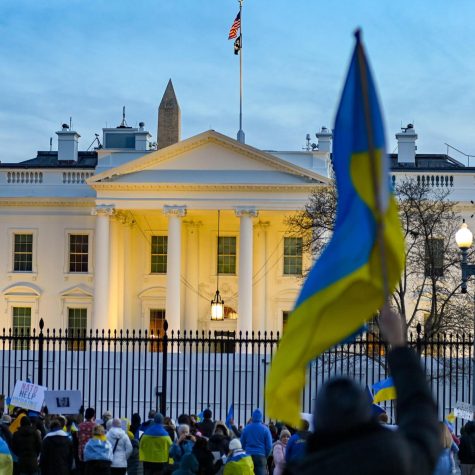ISIS: The Pros and Cons of US Involvement
October 6, 2014
ISIS, also known as ISIL or the Islamic State, originated in 1999 as a group of radical Sunni Muslim jihadists in Iraq, associated with Al-Qaeda. Following the unrest during and after America’s invasion of Iraq, in addition to the civil war in neighboring Syria, the group has been able to gain power. Its goal: to establish a Caliphate or an Islamic state run on the basis of Sharia law. This is being attempted through multiple acts of terrorism.
So far, ISIS has gained a huge presence in Syria and Iraq, and worldwide support from fellow radicals is growing. ISIS is currently involved in conflicts with opposing Kurdish and Iraqi forces, but now, a coalition led by the United States has stepped in, providing aid to rebel forces and conducting air strikes on ISIS. The coalition includes Middle Eastern nations Saudi Arabia, Egypt, Jordan, Bahrain, the United Arab Emirates, Kuwait, Oman and Qatar, and Western nations United Kingdom, Australia, France, Netherlands, Canada, Belgium, and Denmark.
This conflict, and in particular, the West’s involvement, brings to mind memories of the 2003 invasion of Iraq, conducted under President Bush to overthrow the regime of Saddam Hussein and alleged terrorist activities. For almost nine years, the US occupied Iraq. When the US finally withdrew, they had left it in instability, and as a result, insurgency rose. This gave ISIS the means to take over cities such as Mosul and Tikrit, and gain the position of power they have today. With the US primed to place itself into yet another conflict in the area, the question has to be asked: is it worth it?
Opposition of Obama and of US involvement would say no, it’s not. Though Obama has said he does not want to put combat troops on the ground, he’s already sent hundreds of “advisors” to Iraq to help Iraqi troops fight ISIS. This may be putting American lives at risk, and can be used as another example of America acting as the “world’s police,” putting itself into global affairs. The US’s plan to use air strikes and drones against ISIS can also be harmful to innocent civilians, which would only add to the anti-US sentiment in the region. In Pakistan for example, where drones were used to fight the Taliban from 2004 to 2013, it has been estimated by The Bureau of Investigative Journalism that anywhere from 416 to 957 innocent civilians have been killed, 168-202 of them children.
It can also be said that US involvement is necessary. ISIS has delivered viable threats to the US and to American interests, and has already killed Americans. Two American journalists, James Foley and Steven Sotloff, were beheaded by ISIS, explicit videos of their murders posted to the internet by ISIS.
ISIS also continues to persecute minority Christians and Shia Muslims, which has led Amnesty International to accuse ISIS of ethnic cleansing. According to the UN Assistance Mission for Iraq, in August alone, 1,265 Iraqis were killed and 1,198 were wounded as a result of acts of terror.
Surely, humanity should work to stop these violations of human rights. Violence cannot be prevented, but it can at least be limited. It is not America’s responsibility to interfere, but in this situation, with low effort and risk for the US and the rest of the world, is it not the right thing to do?











